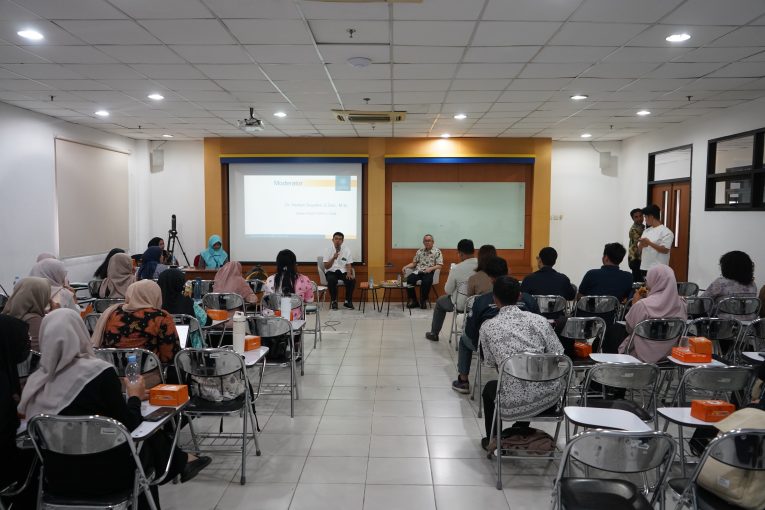
The Master’s Program in Social Development and Welfare (PSdK) of FISIPOL UGM successfully held the PSdK Master’s Symposium over two days, July 7–8, 2025. Taking place at the BA Building and FISIPOL Auditorium, the event became a space for the exchange of strategic ideas involving students, lecturers, practitioners, and alumni.
The symposium opened on Monday (7/7) with a seminar entitled “Frugal Innovation & CSR” delivered by PSdK alumnus Adi Rahmadi. Held in BA 501, this session highlighted the role of low-cost innovation and corporate social responsibility in addressing pressing development issues.
Following the opening seminar, two parallel panel sessions were held, featuring a total of nine panels on various critical topics. Each panel included three to five speakers who presented their research findings and ideas. The first day concluded with a second seminar on “Multidimensional Poverty” presented by Asep Surhayadi, which emphasized the importance of cross-sectoral approaches to tackling structural poverty in Indonesia.
On the second day, Tuesday (8/7), the symposium continued with the third round of panels, consisting of four parallel sessions with a total of 16 panelists. Discussions ranged from issues of local governance to broader themes of social transformation.
The culmination of the symposium was marked by the third seminar on “The Middle-Income Trap” delivered by Roby R Ushandi, held at the 4th Floor Auditorium of FISIPOL. This session explored Indonesia’s challenges in escaping the middle-income trap and outlined strategies for long-term development.
The symposium not only served as an academic forum but also reaffirmed the commitment of the PSdK Department, FISIPOL UGM, to nurturing intellectuals who are sensitive to socio-political issues and capable of making concrete contributions to national development. The initiative strongly aligns with the Sustainable Development Goals (SDGs), particularly SDG 1 (No Poverty), SDG 8 (Decent Work and Economic Growth), SDG 10 (Reduced Inequalities), and SDG 17 (Partnerships for the Goals), highlighting the importance of collaborative knowledge and innovation in achieving inclusive and sustainable development.
